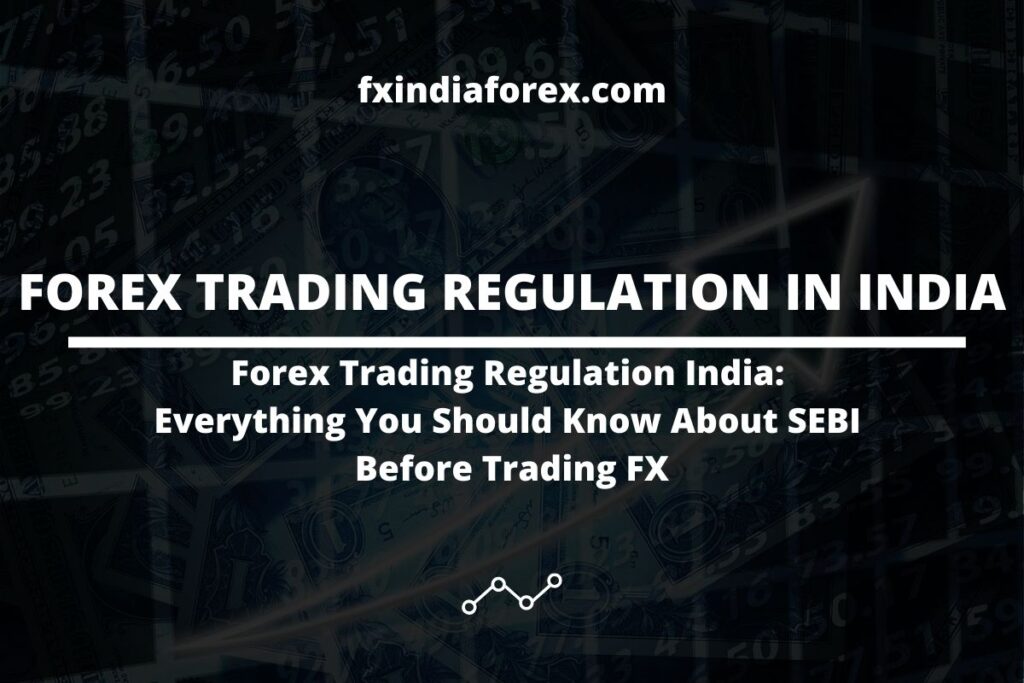Foreign exchange trading, popularly known as Forex trading, has gained widespread popularity in India due to its potential for capital appreciation and diversification of investment portfolios. While participating in the global Forex market offers numerous advantages, navigating the regulatory landscape is crucial to mitigate risks and ensure compliance. Here’s an in-depth exploration of the Forex trading regulations in India, empowering you with the knowledge to engage in responsible and informed trading practices.

Image: fxindiaforex.com
Understanding Forex Trading and Its Influence
Forex trading involves the buying and selling of different currencies against each other in the decentralized global currency market. India’s Foreign Exchange Management Act (FEMA), enacted in 1999, serves as the backbone of the country’s Forex regulations. Current guidelines stipulate that retail Forex trading is not permitted in India due to its speculative nature. However, qualified institutional entities, such as authorized dealers (ADs) and banks, can facilitate Forex transactions on behalf of their clients. These intermediaries must adhere to strict guidelines set forth by the Reserve Bank of India (RBI), the central regulatory body for foreign exchange in India.
Permissible Foreign Exchange Transactions
FEMA permits specific Forex transactions, including those related to international trade, travel expenses, education, and medical remittances. Individuals and businesses engaged in such legitimate operations can freely exchange Indian Rupees (INR) for foreign currencies and vice versa. To ensure compliance, all Forex transactions must be routed through authorized banks or dealers who provide necessary documentation and maintain accurate records.
Recognizing Authorized Dealers
Authorized dealers play a critical role in Forex trading, acting as intermediaries between individuals and the global Forex market. They are permitted to facilitate a wide range of Forex-related services, including currency exchange, treasury management, and trade finance. In India, institutions seeking to become authorized dealers must meet stringent requirements established by the RBI. These include adhering to specified capital adequacy norms, maintaining sound risk management practices, and demonstrating proficiency in Forex operations.

Image: forexcryptohub.com
Implications of Non-Compliance
Non-compliance with Forex regulations can result in significant repercussions. Unauthorized Forex trading or dealing with non-compliant entities is strictly prohibited and subject to legal consequences. Individuals and companies engaging in such activities may face penalties, including fines, imprisonment, and seizure of assets. Additionally, non-compliance can jeopardize the credibility and reputation of the concerned parties in the financial sector.
Protection for End-Users
FEMA emphasizes the importance of protecting retail investors participating in Forex trading. As retail Forex trading is not permitted in India, individuals should be wary of unregulated platforms or brokers offering such services. To safeguard themselves, investors should educate themselves about Forex trading risks, only engage with authorized and trustworthy intermediaries, and avoid succumbing to fraudulent or misleading investment schemes.
Key Regulatory Considerations
Understanding the key regulatory considerations is essential for intermediaries involved in Forex trading. Authorized dealers must diligently comply with RBI guidelines, including:
- Risk Management Framework: Implementing robust risk management practices to address market volatility and potential losses.
- Anti-Money Laundering (AML) and Know Your Customer (KYC) Obligations: Scrutinizing customers, monitoring transactions, and reporting suspicious activities to combat money laundering and terrorist financing.
- Currency Position Limit: Adhering to prescribed limits on open currency positions to minimize exposure to market risks.
- Transaction Reporting: Maintaining accurate records of all Forex transactions and submitting reports to the RBI as required.
- Regular Audits and Inspections: Cooperating with regular audits and inspections conducted by the RBI or designated auditors to ensure compliance and mitigate risks.
Emergence of Alternative Investment Instruments
While retail Forex trading is not permissible in India, investors seeking exposure to currency dynamics can explore alternative investment instruments. These include:
- Non-Deliverable Forwards (NDFs): Contractual agreements to exchange currencies at a predetermined rate on a future date, but without physical delivery of the underlying currencies.
- Currency Futures: Standardized contracts traded on exchanges that provide leverage and allow investors to speculate on future currency movements.
- Options on Currency Futures: Derivatives that give the holder the right, but not the obligation, to buy or sell a specified amount of currency at a set price on a specific date.
Forex Trading Regulations In India
Conclusion
Forex trading regulations in India are designed to promote prudent investment practices, curb speculative activities, and ensure financial stability. By adhering to FEMA guidelines and engaging with authorized dealers, individuals and businesses can navigate the Forex market with confidence. It is imperative to remember that non-compliance carries serious consequences, while legitimate Forex transactions facilitate essential international activities. For retail investors, exploring regulated alternative investment instruments can provide a gateway to participate in currency trading.






